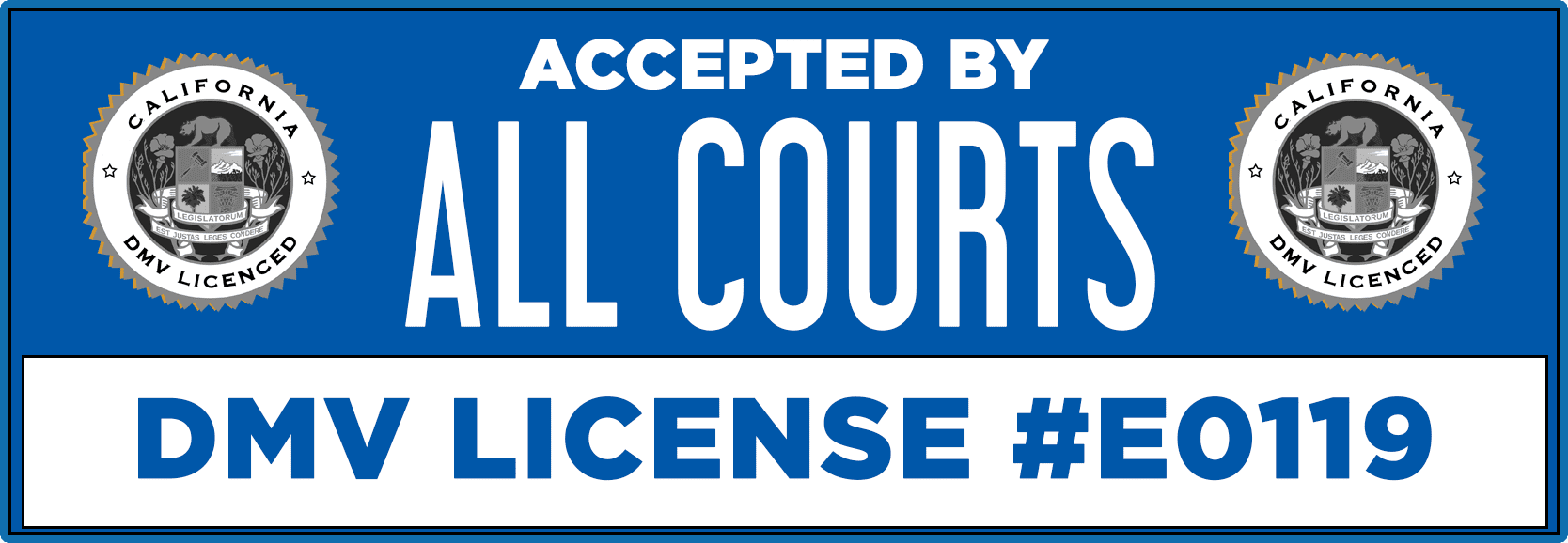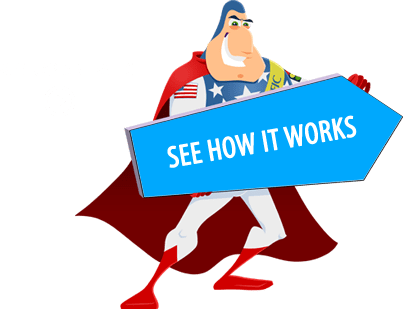In California, traffic school is a valuable option for drivers looking to mask a traffic violation and avoid points on their driving record. However, not every driver is eligible for this benefit. The state has specific rules and regulations in place to determine who qualifies for traffic school and who doesn’t. Understanding why you may be ineligible can help you navigate the legal process more effectively and explore alternative ways to handle your ticket. From serious violations like DUIs to missing key deadlines, this article will walk you through the most common reasons why you might not qualify for traffic school and what steps you can take if you find yourself ineligible.
1. Completed Traffic School in the Last 18 Months
California law (CVC §41501) states that drivers are only allowed to attend traffic school once every 18 months to mask a violation and prevent points from appearing on their driving record. This time frame is calculated from the date of the violation, not the completion date of the course.
Example:
If you attended traffic school for a speeding violation in May 2023, and you receive another ticket in November 2024, you cannot attend traffic school until November 2025.
What to Do:
If you’ve attended traffic school in the last 18 months, your options are to pay the fine or contest the ticket. Contesting the ticket might result in a dismissal or a reduction of the penalty.
2. Violation Is Not Eligible for Traffic School
Certain violations, like DUIs (CVC §23152), reckless driving (CVC §23103), and hit-and-run offenses (CVC §20001), disqualify drivers from traffic school. These are considered serious offenses that involve more severe consequences than minor moving violations.
Example:
A reckless driving conviction means you are ineligible for traffic school since the offense carries heavier penalties, including possible jail time and a license suspension.
What to Do:
If your violation is serious, consult an attorney. Traffic school will not be an option, but legal guidance can help you minimize the penalties.
3. Hold a Commercial Driver’s License (CDL)
Under CVC §42005(c), commercial drivers are generally not eligible for traffic school for violations committed while operating a commercial vehicle. However, CDL holders may attend traffic school for violations that occur while driving a personal vehicle, provided they meet other eligibility requirements.
Example:
If you receive a ticket while driving a truck for work, you cannot attend traffic school. However, if you receive a ticket in your personal car, you may be eligible.
What to Do:
CDL holders must either pay the fine or contest the ticket. If the violation was in a personal vehicle, check your eligibility for traffic school under non-commercial driver rules.
4. Traffic School Not Offered by the Court
Even if you’re eligible, the court has discretion (CVC §42005) to deny traffic school based on your driving record or the nature of your offense. Repeat offenders or those with multiple violations may not be offered the option of traffic school.
Example:
If you have several prior violations on your record or multiple infractions on the same ticket, the court may refuse to offer traffic school.
What to Do:
If the court denies traffic school, you can still contest the ticket in court. Consider asking for a trial by written declaration if you wish to avoid a court appearance.
5. Failed to Meet Traffic School Request Deadlines
California traffic tickets include a strict deadline by which you must request traffic school, typically within 60 days of the citation date. Missing this deadline automatically disqualifies you (CVC §42005) from attending traffic school.
Example:
If your ticket specifies that you must request traffic school within 60 days, but you wait 70 days, your request will be denied.
What to Do:
Always review your ticket carefully and submit your traffic school request as soon as possible. Missing the deadline will leave you with the options of paying the fine or contesting the ticket.
6. Too Many Points on Your Driving Record
California’s Negligent Operator Treatment System (NOTS) disqualifies drivers with too many points on their record from attending traffic school (CVC §12810). If you accumulate 4 or more points in 12 months, 6 points in 24 months, or 8 points in 36 months, you will be classified as a negligent operator and may face license suspension.
Example:
If you’ve received multiple speeding tickets within a short period and accumulate 4 points in a year, the court may refuse your traffic school request due to excessive points.
What to Do:
If you have accumulated too many points, consider speaking to an attorney to contest the ticket and potentially reduce points. Defensive driving courses (non-traffic school) might still help in some cases.
7. Out-of-State Drivers
Out-of-state drivers are sometimes ineligible for California traffic school if their home state does not recognize California’s program or if their violation would not qualify under local laws. Out-of-state tickets fall under the Interstate Driver’s License Compact, but specific eligibility rules may vary.
Example:
If you’re a resident of Arizona and receive a ticket in California, Arizona may not recognize the benefit of California’s traffic school, meaning points may still be applied to your record.
What to Do:
Consult your home state’s DMV or traffic authority and the California court to verify whether traffic school will help mitigate the ticket’s impact on your record.
8. Speeding Over 25 MPH Above the Limit
California courts generally do not offer traffic school for drivers who exceed the speed limit by more than 25 MPH (CVC §22348(b)). Speeding violations above this threshold are considered too severe for traffic school eligibility.
Example:
If you’re caught driving 85 MPH in a 55 MPH zone, you won’t be eligible for traffic school due to the excessive speed.
What to Do:
For high-speed violations, contesting the ticket may be your best option. If you can negotiate a reduced speed violation, you may regain eligibility for traffic school.
9. Failure to Appear in Court
If you’re required to appear in court but fail to do so, the court may automatically revoke your eligibility for traffic school (CVC §40508). Failing to appear (FTA) is considered a separate violation and may carry additional fines and penalties.
Example:
If your ticket indicates a court appearance is mandatory but you miss the date, you will likely be disqualified from traffic school and may face an FTA charge.
What to Do:
Contact the court as soon as possible if you missed your court date. You may be able to resolve the situation, but traffic school will likely no longer be an option.
10. Non-Moving Violations
Traffic school is only available for moving violations (CVC §12810). Non-moving violations, such as parking tickets, registration violations, or fix-it tickets, do not qualify for traffic school because they do not affect your driving record.
Example:
If you’re ticketed for a broken taillight or an expired registration, attending traffic school won’t be an option since these are non-moving violations.
What to Do:
For non-moving violations, your best course of action is to correct the issue (if applicable) or pay the fine. Contesting the ticket in court is another option if you believe it was issued in error.
11. Alcohol-Related Offenses (Beyond DUI)
Aside from DUI charges (CVC §23152), other alcohol-related offenses like open container violations (CVC §23222) and underage drinking while driving disqualify drivers from attending traffic school. Alcohol-related violations are treated as more serious due to the potential public safety risk.
Example:
If you are caught with an open alcohol container in your vehicle, you cannot attend traffic school to dismiss this violation.
What to Do:
For alcohol-related offenses, it’s advisable to consult an attorney to understand your legal options, as traffic school won’t be available to reduce penalties.
12. Multiple Violations on the Same Ticket
If you receive multiple violations on the same ticket (CVC §42005), such as speeding and running a red light, the court may decide that traffic school is not a sufficient remedy due to the combined severity of the offenses.
Example:
If you receive a ticket for both running a red light and speeding, the court may feel that traffic school alone isn’t enough to address the multiple infractions.
What to Do:
If you have multiple violations, consider contesting one or more of them in court. Getting one dismissed may improve your eligibility for traffic school.
13. Red Light Camera Violations
Some jurisdictions in California do not offer traffic school for red light camera tickets. These violations are considered more serious because they involve disregarding traffic signals, which increases the likelihood of accidents.
Example:
If you receive a red light camera ticket in Los Angeles, traffic school may not be offered as an option to dismiss the violation.
What to Do:
Check the specific rules in your jurisdiction to see if red light camera violations are eligible for traffic school. If not, contesting the ticket may be your only option.
14. Failure to Pay Fines or Meet Court Requirements
If you fail to pay the fines associated with your ticket or do not meet other court requirements (CVC §40509.5), the court may revoke your eligibility for traffic school. This can include missed payment deadlines, failure to complete a court-mandated action, or failing to submit required documents.
Example:
If you miss a payment deadline for your fine, the court may disqualify you from traffic school as part of the penalty.
What to Do:
Ensure you meet all court deadlines and requirements. If you have financial difficulties, inquire about payment plans or other options to prevent further penalties.
Being ineligible for traffic school can feel like a setback, but it doesn’t mean you’re out of options. Whether you’ve accumulated too many points, committed a serious violation, or missed a deadline, knowing the reason for your ineligibility can help you take the right steps to resolve your ticket. You may still have the opportunity to contest the ticket, seek legal advice, or explore other avenues to minimize the impact on your driving record and insurance rates. By staying informed about the laws and understanding your rights, you can make better decisions about how to handle your traffic violation moving forward.





